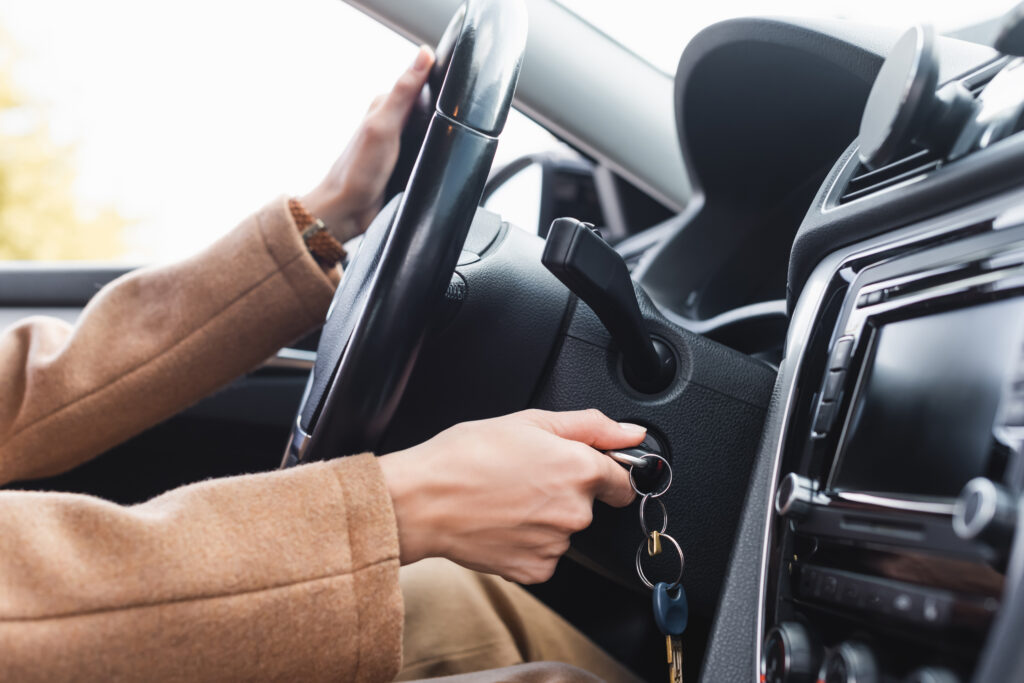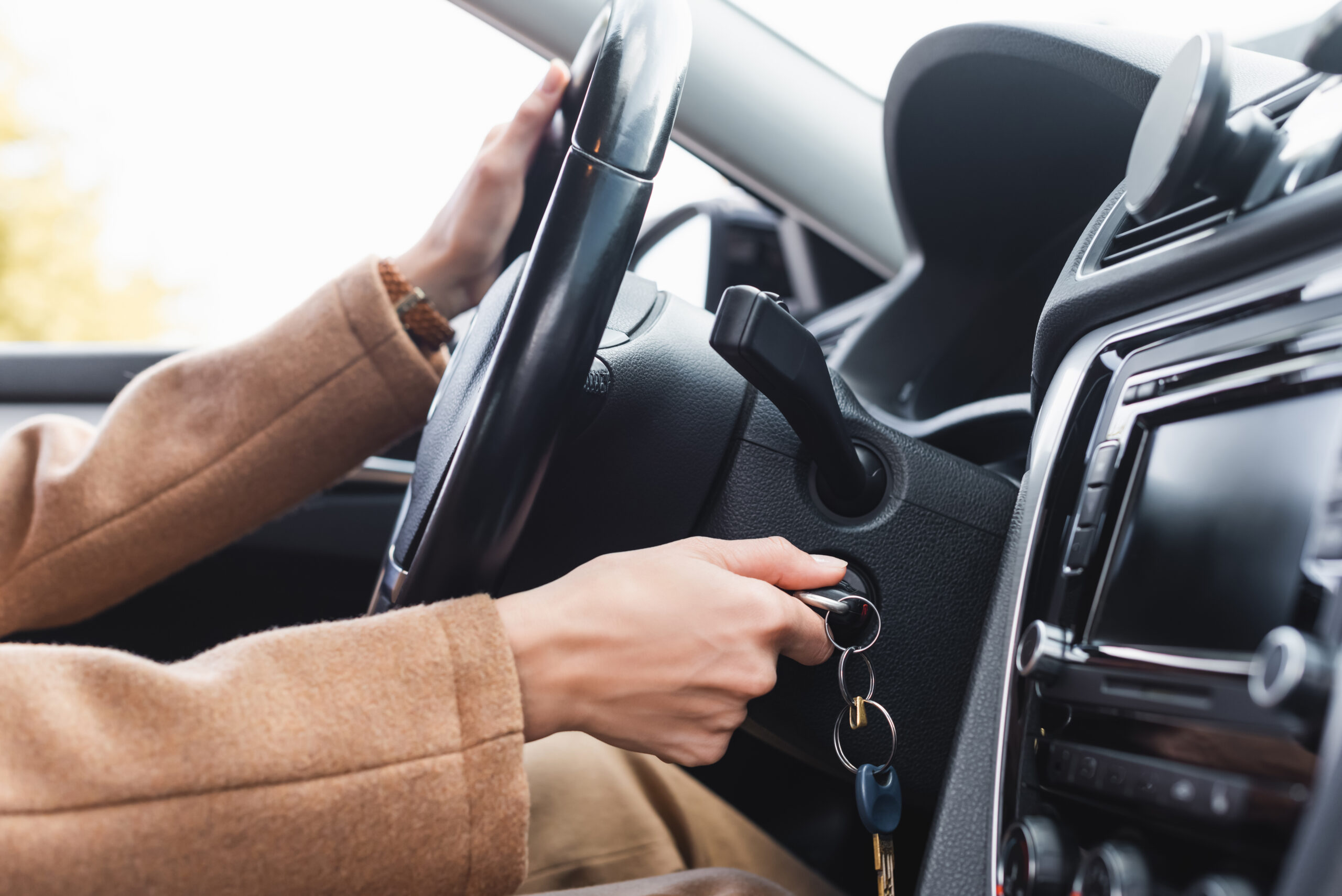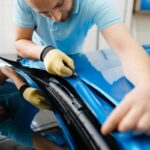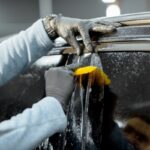Why Does My Car Make a Noise When I Start It?
As a car expert, I’ve heard this question many times: “Why does my car make a noise when I start it?” The truth is, there could be many different reasons why your car is making a noise when you start it up.

In this post, I’m going to share with you the most common types of car noises when starting and their possible causes.
I’ll also give you some tips on how to identify car noises and when to consult with a mechanic for proper diagnosis and repair.
Common Types of Car Noises When Starting
Squeaking or Squealing
If you hear a squeaking or squealing noise when you start your car, it’s likely that there’s a problem with the belts in your engine. Belts can become loose or worn over time, which can cause them to slip and make noise.
Additionally, if the tensioner that keeps the belts tight is not functioning properly, this can also cause squeaking or squealing. Finally, worn bearings in the alternator or other engine components can cause a squeaking noise.
Grinding or Whining
A grinding or whining noise when starting your car can be a sign of a faulty starter motor. The starter motor is responsible for turning the engine over when you start the car, and if it’s not working correctly, it can cause a grinding or whining noise.
Another possible cause of a grinding noise is a damaged flywheel. Finally, low engine oil can also cause a whining noise when starting your car, as the oil is not circulating properly through the engine.
Clicking or Ticking
If you hear a clicking or ticking noise when you start your car, it could be a sign of a low battery voltage. This can happen if your battery is old or not holding a charge properly.
Another possible cause of a clicking noise is a faulty starter solenoid, which is responsible for engaging the starter motor when you turn the key. Finally, a worn or damaged starter motor can also cause a clicking or ticking noise.
Less Common Car Noises When Starting
Hissing or Whistling
If you hear a hissing or whistling noise when starting your car, it’s possible that there’s a problem with the vacuum hoses in your engine.
Vacuum hoses are used to regulate air flow in the engine, and if they become loose or damaged, they can cause a hissing or whistling noise.
Another possible cause of a hissing noise is a damaged air intake system, which can cause air to leak out and make a noise.
Rattling or Knocking
A rattling or knocking noise when starting your car can be a sign of worn engine bearings.
Bearings are used to support the moving parts in your engine, and if they become worn over time, they can cause a rattling or knocking noise.
Another possible cause of a rattling or knocking noise is a damaged crankshaft or piston, which can cause the engine to vibrate and make noise.
Popping or Backfiring
If you hear a popping or backfiring noise when starting your car, it’s possible that there’s an issue with the ignition timing.
The ignition timing controls when the spark plugs fire in the engine, and if it’s not set correctly, it can cause a popping or backfiring noise.
Another possible cause of a popping or backfiring noise is a problem with the fuel system, such as a clogged fuel filter or a malfunctioning fuel injector.
How to Identify Car Noises When Starting
Now that you know the most common types of car noises when starting and their possible causes, how do you identify them? Here are some tips to help you:
- Listen carefully to the noise and try to determine where it’s coming from. Is it coming from the engine bay, the exhaust system, or somewhere else?
- Pay attention to when the noise occurs. Does it happen only when you start the car, or does it continue while the engine is running?
- Try to describe the noise as accurately as possible. Is it a squeaking, grinding, clicking, or some other type of noise?
- Check for any other symptoms that may be related to the noise, such as difficulty starting the car, poor engine performance, or unusual smells or smoke.
When to Consult with a Mechanic
While some car noises when starting can be easily diagnosed and repaired, others may require the expertise of a mechanic. Here are some signs that it’s time to consult with a mechanic:
- The noise is getting louder or more frequent.
- The noise is accompanied by other symptoms, such as poor engine performance or difficulty starting the car.
- You’re not sure what’s causing the noise or how to fix it.
In these cases, it’s best to take your car to a trusted mechanic for proper diagnosis and repair. Ignoring car noises when starting can lead to more serious problems down the road, so it’s always better to be safe than sorry.
Cost of a Professional Diagnostic
While some car noises when starting can be easily diagnosed and repaired by DIY methods, others may require the expertise of a professional mechanic.
If you’re not confident in your ability to diagnose and repair the issue, it’s best to take your car to a trusted mechanic for proper diagnosis and repair.
The cost of a professional diagnostic can vary depending on the mechanic and the location, but it typically ranges from $50 to $150. However, keep in mind that the cost may increase if additional repairs are needed.
It’s always a good idea to ask for a quote before agreeing to any repairs to avoid any surprises.
Conclusion
If you’re wondering why your car is making a noise when you start it, there could be many different reasons. From squeaking belts to faulty starter motors, the possibilities are endless.
By understanding the most common types of car noises when starting and their possible causes, you can better diagnose and repair any issues with your car.
And remember, if you’re not sure what’s causing the noise or how to fix it, don’t hesitate to consult with a mechanic for help.









